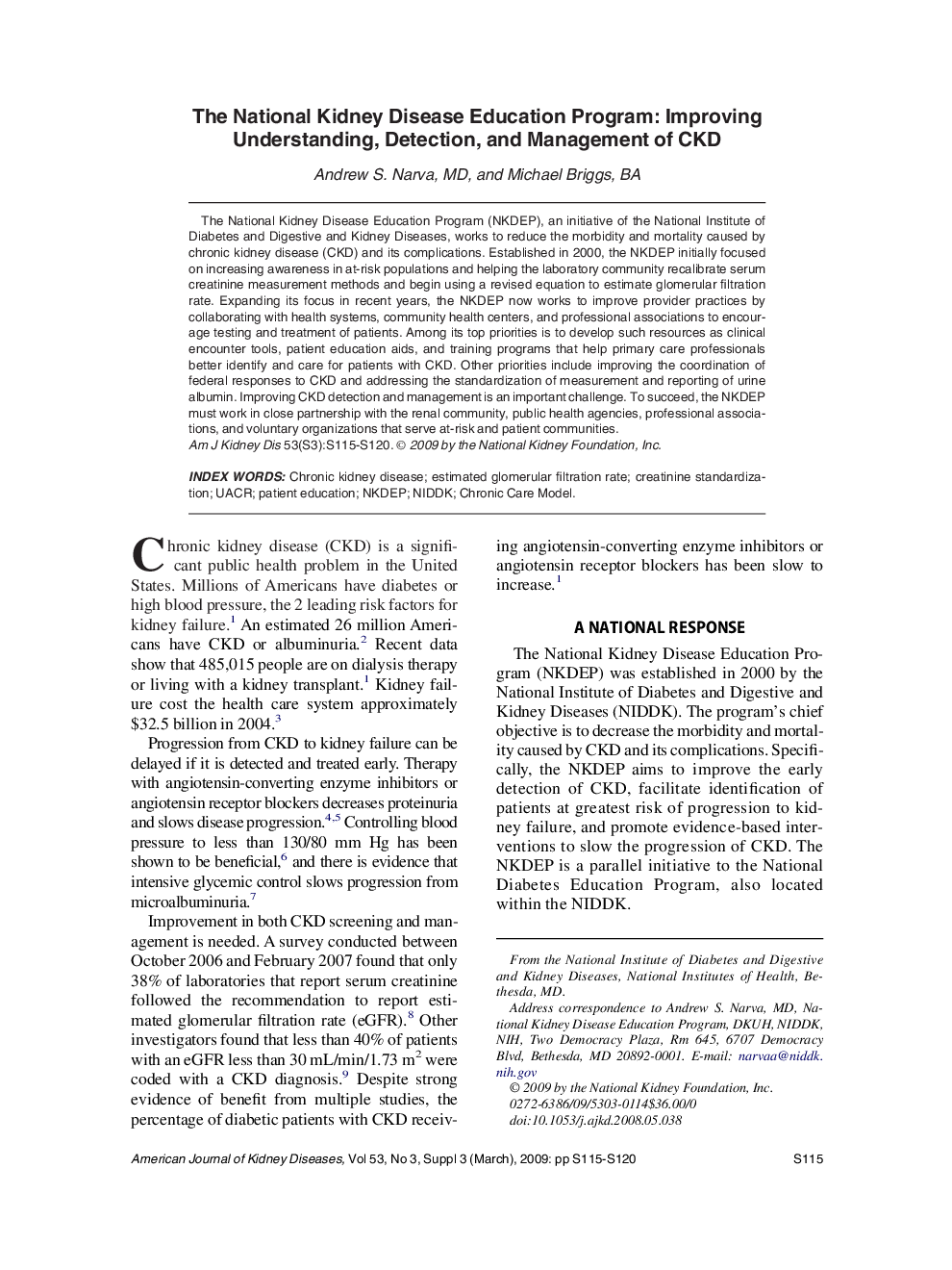| Article ID | Journal | Published Year | Pages | File Type |
|---|---|---|---|---|
| 3851265 | American Journal of Kidney Diseases | 2009 | 6 Pages |
Abstract
The National Kidney Disease Education Program (NKDEP), an initiative of the National Institute of Diabetes and Digestive and Kidney Diseases, works to reduce the morbidity and mortality caused by chronic kidney disease (CKD) and its complications. Established in 2000, the NKDEP initially focused on increasing awareness in at-risk populations and helping the laboratory community recalibrate serum creatinine measurement methods and begin using a revised equation to estimate glomerular filtration rate. Expanding its focus in recent years, the NKDEP now works to improve provider practices by collaborating with health systems, community health centers, and professional associations to encourage testing and treatment of patients. Among its top priorities is to develop such resources as clinical encounter tools, patient education aids, and training programs that help primary care professionals better identify and care for patients with CKD. Other priorities include improving the coordination of federal responses to CKD and addressing the standardization of measurement and reporting of urine albumin. Improving CKD detection and management is an important challenge. To succeed, the NKDEP must work in close partnership with the renal community, public health agencies, professional associations, and voluntary organizations that serve at-risk and patient communities.
Keywords
Related Topics
Health Sciences
Medicine and Dentistry
Nephrology
Authors
Andrew S. MD, Michael BA,
